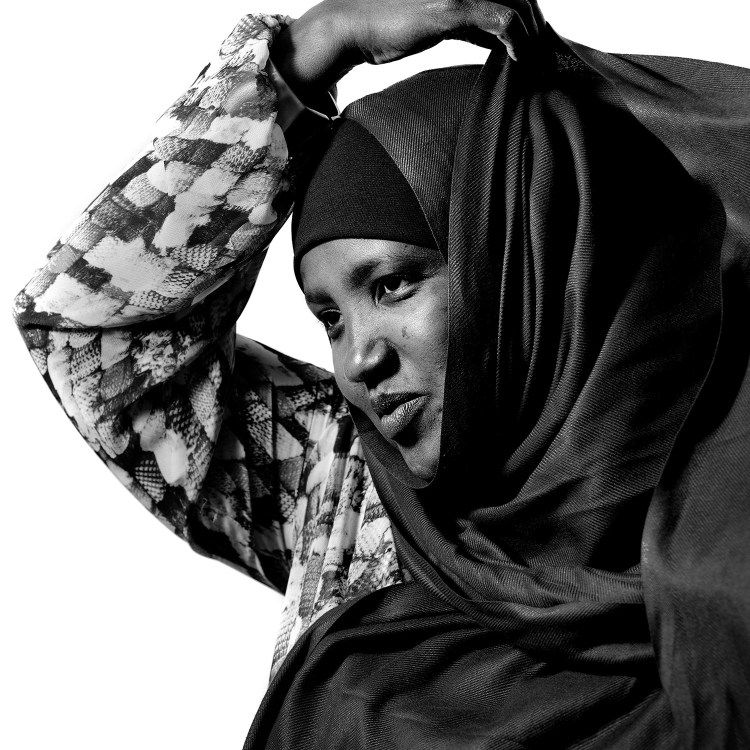Fatuma Hussein was 12 and visiting relatives when war broke out in her native Somalia in 1991. Her family was forced to flee, winding up in a refugee camp in Kenya.
“You would hear so-and-so went missing or this woman was raped last night…horrible, horrible things, experiences you wouldn’t wish on anybody,” Hussein said.
It was one of Hussein’s earliest exposures to sexual violence. Later, as a political refugee in Georgia, she and other young women were at the mercy of domineering men. When the girls were threatened, they didn’t even know how to dial 911, she said.
“Those are the experiences we carry with us. They’re tough experiences, experiences my daughter, who was born here, will never be able to relate to, never be able to understand,” Hussein said. “They inspire me to do what I do to make sure somebody else’s life will be better.”
Now Hussein is a leading voice against gender-based violence in the African immigrant community as the executive director and founder of United Somali Women of Maine. The organization trains advocates with the same backgrounds as the women they serve, bringing familiar language and cultural awareness to immigrant women.
“A Sudanese, Somali, Iraqi, Burundi, Angolan – all of those populations we serve – we come from a place that didn’t have a woman’s rights,” Hussein said. “Oppression is still very well exercised in our communities. Our victims, whether men or women, may not be comfortable to come out.”
Hussein, the oldest of 13 children, attended a British elementary school in Mogadishu, giving her the foundation necessary to enroll in high school when she arrived in the U.S. in 1993.
After graduation, she began raising a family in suburban Atlanta, but got tired of the crime and congestion. She came to Portland in 2001, then moved to Lewiston, where there was then no Somali presence to speak of.
“I literally fell in love with Lewiston. It was small, community based,” she said.
She was offered a state job working with refugees, but turned it down because she was due to give birth. Instead, she joined a small group of women to start United Somali Women of Maine.
“I knew we had vulnerable people. We had a state that was not used to this population,” she said. The organization helped connect people with services but also tackled the taboo subject of gender-based violence.
“Domestic and sexual violence has no boundaries,” she said.
Send questions/comments to the editors.



Success. Please wait for the page to reload. If the page does not reload within 5 seconds, please refresh the page.
Enter your email and password to access comments.
Hi, to comment on stories you must . This profile is in addition to your subscription and website login.
Already have a commenting profile? .
Invalid username/password.
Please check your email to confirm and complete your registration.
Only subscribers are eligible to post comments. Please subscribe or login first for digital access. Here’s why.
Use the form below to reset your password. When you've submitted your account email, we will send an email with a reset code.